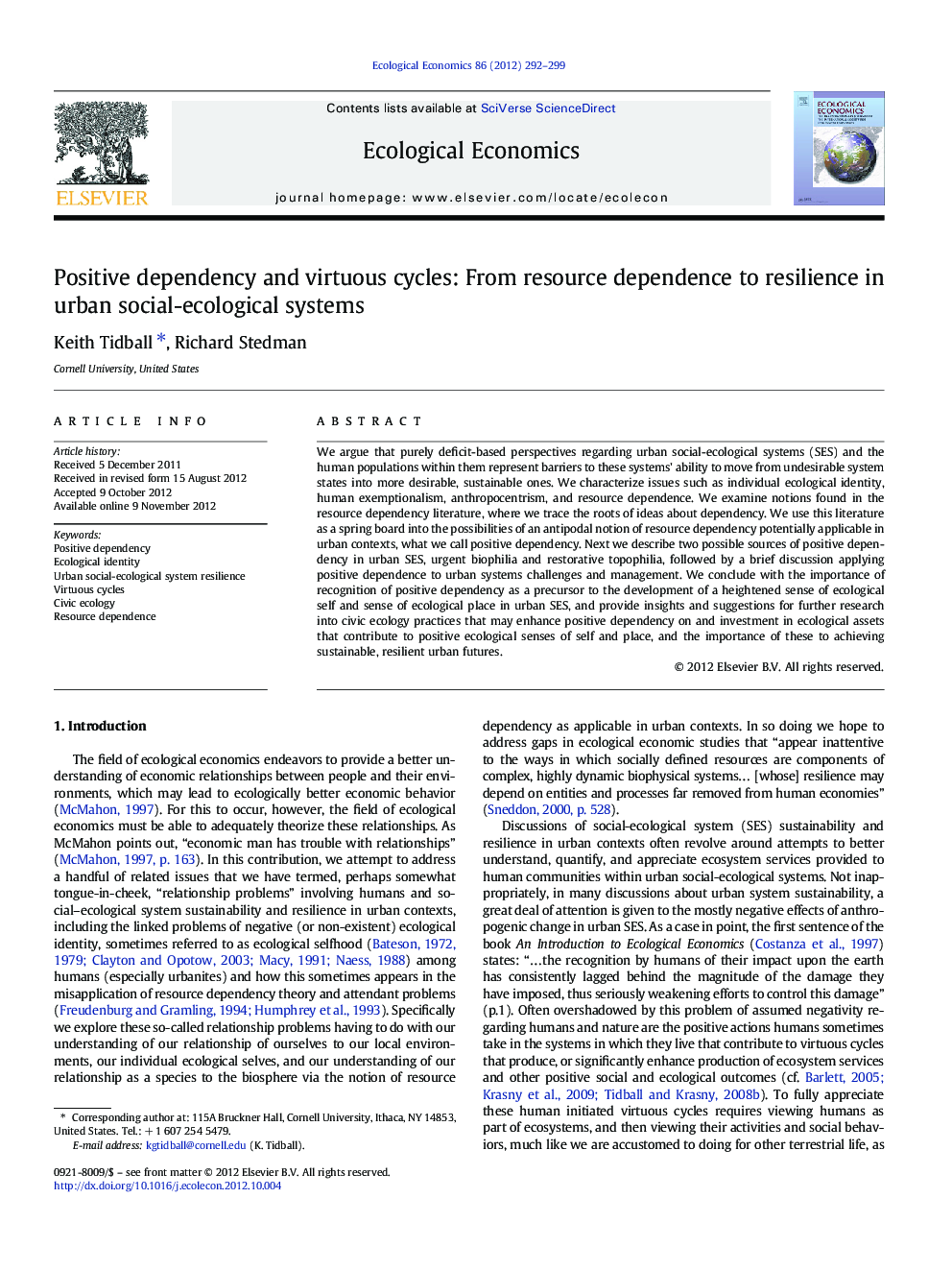| Article ID | Journal | Published Year | Pages | File Type |
|---|---|---|---|---|
| 5050143 | Ecological Economics | 2013 | 8 Pages |
We argue that purely deficit-based perspectives regarding urban social-ecological systems (SES) and the human populations within them represent barriers to these systems' ability to move from undesirable system states into more desirable, sustainable ones. We characterize issues such as individual ecological identity, human exemptionalism, anthropocentrism, and resource dependence. We examine notions found in the resource dependency literature, where we trace the roots of ideas about dependency. We use this literature as a spring board into the possibilities of an antipodal notion of resource dependency potentially applicable in urban contexts, what we call positive dependency. Next we describe two possible sources of positive dependency in urban SES, urgent biophilia and restorative topophilia, followed by a brief discussion applying positive dependence to urban systems challenges and management. We conclude with the importance of recognition of positive dependency as a precursor to the development of a heightened sense of ecological self and sense of ecological place in urban SES, and provide insights and suggestions for further research into civic ecology practices that may enhance positive dependency on and investment in ecological assets that contribute to positive ecological senses of self and place, and the importance of these to achieving sustainable, resilient urban futures.
⺠Deficit-based perspectives on urban systems are barriers to movement from undesirable to more sustainable states. ⺠Issues such as ecological identity, human exemptionalism, anthropocentrism, and resource dependence contribute to barriers. ⺠Urgent biophilia and restorative topophilia may enhance ecological identity and beneficial positive dependency. ⺠Positive dependency may start, re-start, or expand virtuous cycles that confer desired resilience.
